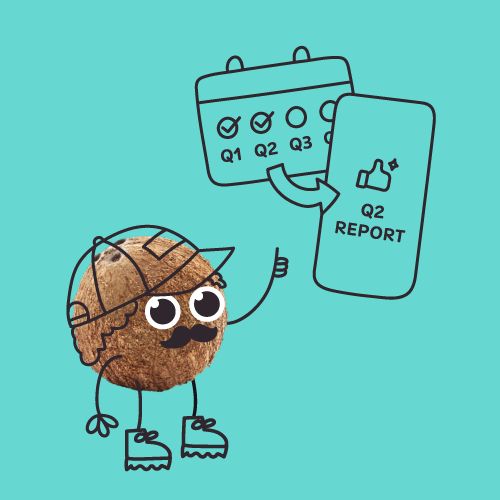A big part of working for yourself is handling the financial side of things. Once you’ve done the work, you need to get paid for it.
Here’s our quick guide to everything you need to know about getting paid and managing your income.

Setting your rates
This is arguably one of the most important aspects of running your own business. You’ll need to work out how much you’re going to charge your clients, either as a one-off project-based fee, or as a daily (or hourly) rate.
It’s always best to do some research first, to get a sense of the going rate for your services or skill set. Naturally, it will depend on your level of experience, but you need to make sure you’re charging enough to cover your costs.
Building up a good reputation and referrals is a really important factor here. You can earn the respect and trust of a group of clients with reasonably-charged work, delivered on time and to a high standard.
There are lots of articles out there sharing advice on this subject, especially as guidance differs by industry. Here are some of our favourites:
- How to set your freelance rates, by Creative Boom
- A beginner’s guide to pricing for freelancers, creatives and consultants, by Imogen Roy - Medium
- Freelance pricing guide, by Work Notes (NB. this is charged at $16)

Handling late payments
Getting paid on time is not as simple as it should be.
A survey by Ormsby Street found that almost half – 46% – of freelancers and sole traders regularly experience difficulty in getting paid on time. Just over 1,000 survey respondents were owed an average of £5,431.
Here are our top three tips to help you avoid this situation.
- Be clear on your terms – and theirs – from the start. Make sure you’re clear and comfortable with the client’s payment terms and process right at the start. Do you need a PO number or a specific detail to put on the invoice? If your point of contact goes on holiday, is there someone else who can help you?
- Get paid in instalments. If you’re being asked to take on a big project, ask if you can be paid in instalments or invoice say 30% upfront. That way you’re not left waiting at least 30 days after the work is completed and signed off to be paid for your time.
- Ring fence a certain time each week to follow up. Chasing invoices is an inevitable activity if you run your own business, but it’s best to do this at a specific point in the week rather than ad hoc. Carving out a specific time to focus on your invoicing and payment chasing each week means you can minimise the stress involved and are less likely to forget to follow up on a payment.

Find the right tools to help you manage it
You’ll need to keep records of everything you’ve sent and when you've been paid, and the easiest way to do this is to use accounting software, which also enables you to create professional-looking invoices.
With Coconut you get accounting and invoicing in-one. With our built-in invoicing tool you can create, send and manage invoices anytime, anywhere. We’ll notify you when you get paid and we’ll automatically match the payment to your invoice (that's your accounting bit done ✅).

With a simple overview of what’s been paid and what’s overdue it’s much easier to keep on top of everything.
Last minute changes needed? You can edit your invoices after you’ve sent them, allowing you to quickly make amendments and corrections to avoid any delays in getting paid.
Trying to keep tabs on your hours spent? Create a draft invoice and add a line item each day to clock up your hours as you go, so you're ready to hit send as soon as the work has been done!
Is your customer asking you to resend an invoice because they’ve lost it in a pile of other emails? No problem, with Coconut you can resend invoices with a tap.
There are also important tax implications to be aware of when it comes to income, like registering for VAT once you reach a certain threshold and setting aside the right amount of money for tax. If in doubt it's always worth chatting to an accountant.
We created the Coconut Accountant Portal, used by over 750 accountants, to make it as easy as possible for you to work together. You can read more on how it works here.
Coconut gives you the power of a finance team in your pocket.
With expenses, invoicing and tax all in one, it’s the ultimate accounting and tax tool for self-employed people.
Download the app and sign up for free today.











